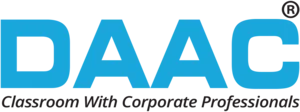Reasons to Become a Full Stack Developer
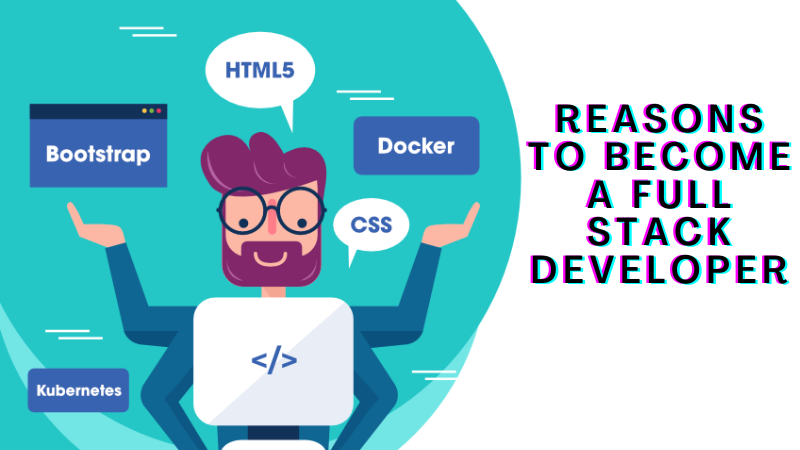
The artistic side of web development may appeal to some, while the technical side may appeal to others. Thirdly, some people master both aspects. Front-end developers make up the first group, backend developers make up the second, and full-stack developers make up the third.
A modern web application requires more than 20 job functions, so developers who can navigate these functions across the stack are highly valuable. Due to their versatility, ability to step in and troubleshoot areas across the technology ecosystem that go into building a successful product, and speed and cost-effectiveness, full-stack developers are always in demand.
Full-stack developers deliver everything from mobile-first strategies, MVP (minimum viable product) cycles, app development, and exceptional UI/UX. It's important to understand what a full-stack developer is and what they do before diving into everything they have to offer once they become a skilled full-stack developer.
What is Full-Stack Development?
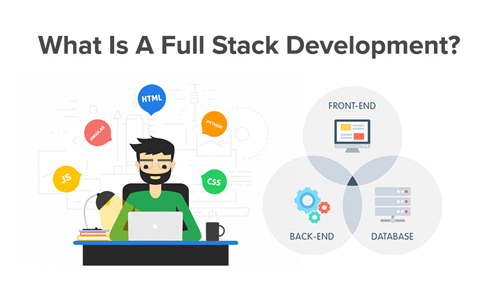
Web application or website development that covers the front-end and the backend is known as full-stack development. First of all, what does 'full stack' mean?
It consists of a front end that handles the user interface, a back end that handles data validation, and a database that serves as a repository for information from the front end to the logic layer.
Software's 'full stack' consists of many components working together to ensure smooth operation, including software products, patches, coding frameworks, servers, operating systems, databases, etc.
This full stack facilitates user interaction, runs calculations, and powers backend functions.
Different tools, frameworks, and technologies are used in each full stack. To become a Full-Stack developer, you must be able to use the associated front-end and backend languages, tools, and frameworks.
What is the role of a Full-Stack Developer?
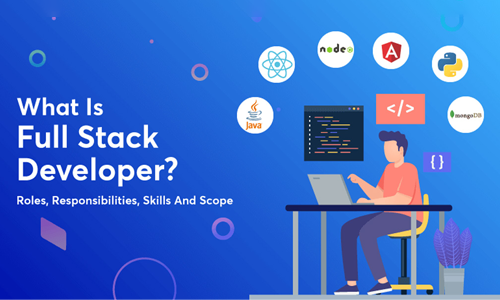
Stack refers to a combination of technologies and products that form a product's technical ecosystem and backbone.
Databases like MongoDB, MySQL, application frameworks like Express, Rails, or Laravel, runtimes like Node.js, PHP, or Ruby, and client-side frameworks like React, Angular, or Vue are all components of a stack. Various stacks, including MEAN, MERN, LAMP stack, Ruby on Rails, and many others, are required and used depending on the project requirements.
The full-stack developer's job is to handle both the front-end and the backend, including servers, databases, and clients. To ensure that a stack works efficiently, a Full-Stack Developer must be able to work with all components.
What Are the Benefits of a Career in Full-Stack Development?
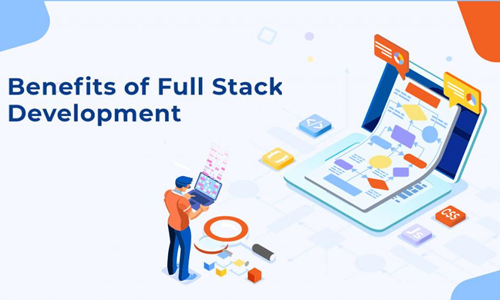
Learning various front-end and backend technologies is not the only component of full-stack development. Communication between the two areas must also be easy and smooth, and the two must be understood sufficiently.
Full-Stack developers will need to learn new technologies to stay up-to-date with the latest trends. Software developers benefit from this wide range of skills across the stack.
You should consider becoming a full-stack developer if you're a fresher or mid-career professional trying to break into the world of tech:
1. Companies are no longer searching for software specialists using full-stack development. Multi-faceted, multi-skilled full-stack developers are preferred, as are those cultivating a continuous learning mindset.

Businesses can benefit greatly from this broad skill set that brings speed and cost-effectiveness to their businesses. Full-stack developers enjoy fast-tracked career growth across organizations ranging from startups to global enterprise solutions.
Full-stack engineers typically start their careers as front-end or backend developers, quickly moving up the ranks as they develop their technical skills. Work-based boot camps can help you master all aspects of development and prepare you for the industry in a relatively short time.
2. One of the highest-paying jobs is Full-Stack Development.
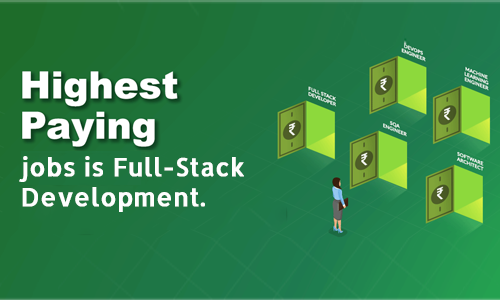
Its impact on business and marketing makes full-stack development one of the most highly paid-jobs in the world. As a result, organizations can distinguish themselves and drive revenue growth with this versatile approach to development.
According to ZipRecruiter, entry-level full-stack developers in the US earn an average salary of $58,040 per year. It is $97,500 for mid-level developers and $116,504 for experienced ones. According to Indeed, the average annual salary in the US is $113,462 a year, while in the UK, it ranges from £40,000 to £70,000.
The remuneration of a full-stack developer varies depending on factors such as the developer's core skills, additional skills (databases, UI/UX basics, etc.), and the organization's location, demographics, and experience.
3. Rapid project delivery is enabled by full-stack development.
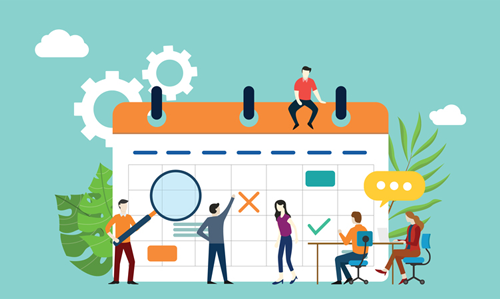
Full-stack developers are responsible for tasks such as integration, updates, front-end, and backend coordination, and meeting client expectations. Besides reducing dependencies on other teams, which often delay the execution, it speeds up the development cycle and reduces costs.
Full-stack developers should also be familiar with the Agile Project Management (APM) framework, Scrum, and its building blocks. The job profile also requires effective communication with team members to streamline development processes.
A full-stack developer can deliver results quickly with a toolkit that combines the most efficient tools in the industry.
4. Building versatility is the goal of full-stack development.

Full-stack developers are one-stop solutions for companies. It is the full-stack developer's responsibility to handle different stages of the project, such as initiating the project, basic level of development, key project contributions both on the front-end and backend, and managing UI/UX based on client feedback. As a result, they have a great responsibility, dependability, and credit for completing projects successfully.
A full-stack developer's multidimensional skill set enables them to provide an end-to-end solution across the development spectrum. For their versatility, acrTheir versatility across the stack translates to speed to market for tech companies.
The full-stack development program will teach you HTML, CSS, JavaScript, backend languages (Python, PHP, Ruby), database storage, HTTP, REST, and NPM, and Agile project management and soft skills.
5. As productivity increases, responsibility increases as well.

Full-stack developers work on both the client side and server side of an application. Developers have more control over their products, allowing them to be far more creative. Full-stack developers can make better decisions faster because they can see the big picture.
The broad range of skills across the stack combined with creative freedom and good judgment skills increases the overall productivity of full-stack developers, enabling them to be self-reliant and move the needle on development more quickly.
6. Full-Stack Development: Get Future-Ready

You can go from zero to an advanced level if you have a passion for learning and an organized program coupled with hands-on practice.
A Full-Stack Dev Bootcamp like Knowledge huts adds immense value when figuring out what projects to build. With an immersive project-based curriculum focused on practical developer skills, you will leave the Bootcamp with a portfolio of real-world projects deployed on GitHub.
In this program, you will receive world-class mentorship and real work-like experiences, enabling you to work on internship-grade projects in a real development environment.
Recruiters can view your project portfolios on GitHub during your interviews.
As new technologies enter the market, the demand for full-stack developers will increase. Despite the opportunity's bells and whistles, those who will succeed are those who keep up with the latest and continually improve their full-stack development skills.
Conclusion
If you're interested in learning more about the full-stack and how Knowledge Hut can help you get a job in top tech companies, check out our Full-Stack Development Bootcamp. In addition, to live instructor-led classes, you will also have the opportunity to practice hands-on with Cloud Labs and access on-demand self-paced learning, mentorship, capstone projects, assignments, assessments, quizzes, and more.
